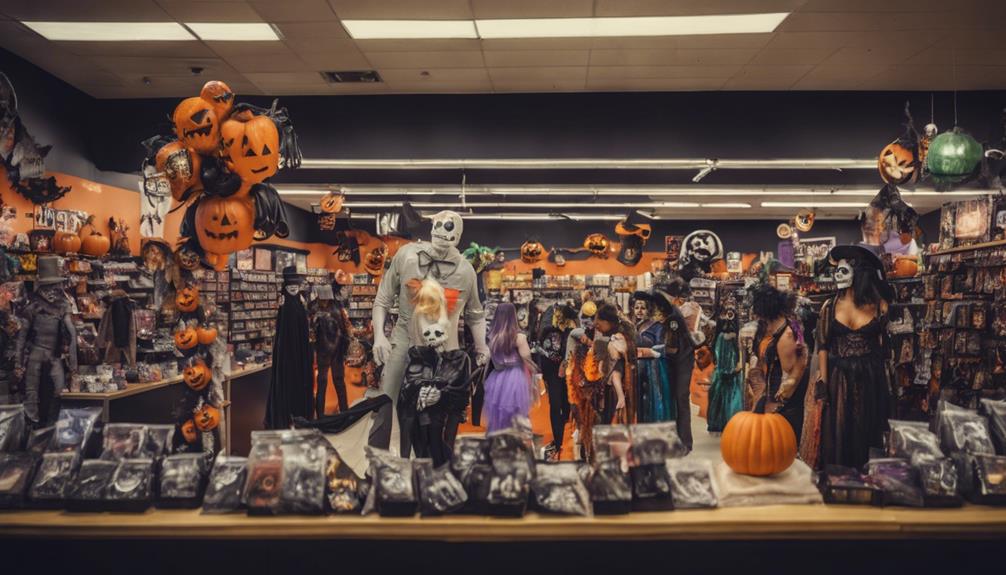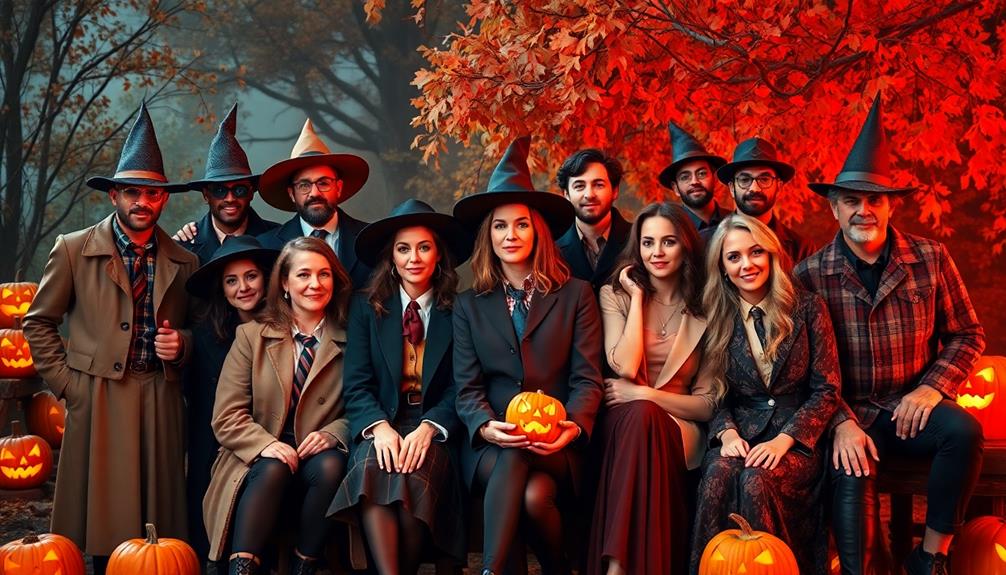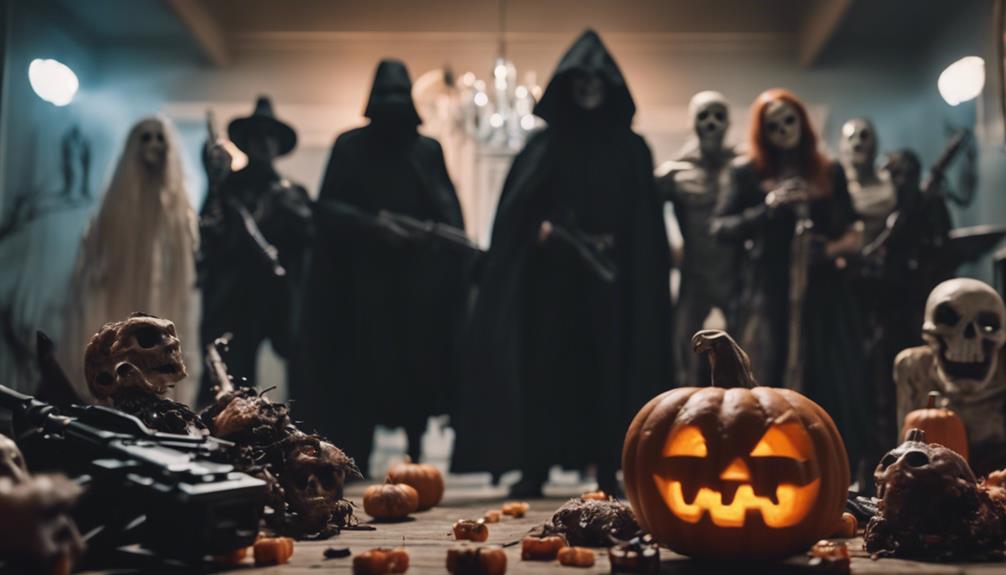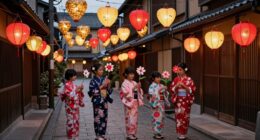In Hungary, Halloween is a time to honor deceased loved ones with solemn traditions. During late October, All Saints Day on November 1 and All Souls Day on November 2 hold significant importance. Families visit cemeteries, clean tombstones, and decorate gravestones with white chrysanthemums. Lighting candles on these days symbolizes remembrance and enduring connections. This cultural practice differs from Western Halloween celebrations, as it emphasizes honoring and remembering those who have passed in a more subdued manner. Hungarian customs blend heritage and contemporary influences for a unique way to commemorate.
Key Takeaways
- Hungarian Halloween focuses on honoring deceased loved ones.
- Visiting cemeteries and cleaning tombstones are common practices.
- Lighting candles to symbolize remembrance and guiding souls.
- Solemn remembrance on All Deceaseds Day with family visits.
- Cultural customs emphasize honoring and remembering ancestors.
Traditional Hungarian Commemoration Practices
In Hungary, at the end of October, people honor the deceased with silent and simple practices, such as visiting cemeteries and lighting candles. This time marks the days of All Saints and All Souls, where Hungarians commemorate the graves of their loved ones. It's a solemn period where the focus is on remembrance rather than festivity.
All Saints Day, celebrated on November 1, is particularly significant in Hungarian traditions. On this day, Roman Catholics remember the deceased saints and emphasize the importance of prayer for the departed. All Souls Day follows on November 2, dedicated to praying for all souls in purgatory. It's a time of reflection and honoring those who've passed away.
Partying during this time is considered inappropriate due to the somber nature of the commemorations. Hungarians prefer to pay their respects quietly and with reverence, showing their love and respect for those who've passed on.
Visiting Cemeteries and Decorations

When paying respects to deceased loved ones in Hungary, visiting cemeteries involves cleaning tombstones, laying flowers, and offering food at gravesites. This tradition is deeply rooted in Hungarian culture and is particularly significant during Halloween as a way to honor and remember those who've passed away.
Here are some key aspects of cemetery visits and decorations in Hungary:
- Cleaning Tombstones: Hungarians take great care in cleaning the tombstones of their deceased loved ones before Halloween, ensuring that the gravesites are tidy and well-maintained.
- Laying Flowers: White chrysanthemum flowers and wreaths are common decorations that Hungarians place on graves during their cemetery visits. These flowers symbolize respect, honor, and remembrance for the departed.
- Food Offerings: As part of the tradition, Hungarians also offer food at the gravesites of their loved ones. This gesture is a way to share a meal with the deceased and show that they're still remembered and cherished.
Lighting Candles for Deceased Loved Ones

Amidst the cemetery visits and decorations in Hungary, a crucial tradition emerges as Hungarians light candles for their deceased loved ones during All Saints Day and All Souls Day. These days, recognized as public holidays in Hungary, hold profound significance for honoring and remembering those who've passed away.
When visiting cemeteries, Hungarians meticulously clean tombstones, lay fresh flowers, and most importantly, light candles on the graves of their deceased loved ones. The act of lighting candles not only illuminates the somber surroundings but also symbolizes remembrance, respect, and the enduring connection between the living and the departed souls.
The flickering flames create a serene and contemplative atmosphere, allowing individuals to pay tribute to their ancestors and loved ones in a meaningful way. This tradition of lighting candles plays an essential role in Hungarian customs, emphasizing the importance of honoring and cherishing the memories of those who've left this world.
Somber Remembrance on All Deceaseds Day

With a solemn atmosphere enveloping the end of October, Hungarians engage in somber remembrance for all deceased loved ones. This period of remembrance culminates on All Deceaseds Day, observed on November 2. Here are some key practices during this time:
- Cemetery Visits: Families visit the graves of their deceased loved ones, cleaning and decorating them with white chrysanthemum flowers and wreaths. It's a time for reflection and honoring the memories of those who've passed away.
- Lighting Candles: Lighting candles at the gravesites is a common ritual symbolizing the light that guides the souls of the departed. The flickering flames create a serene and peaceful ambiance in the cemeteries.
- Somber Remembrance: All Deceaseds Day is a solemn occasion where the focus is on honoring and remembering the deceased. Partying is avoided during this time as respect for the somber nature of the event takes precedence.
During this period, Hungarians show their respect and love for their deceased loved ones through these heartfelt traditions.
Contrast With Western Halloween Celebrations
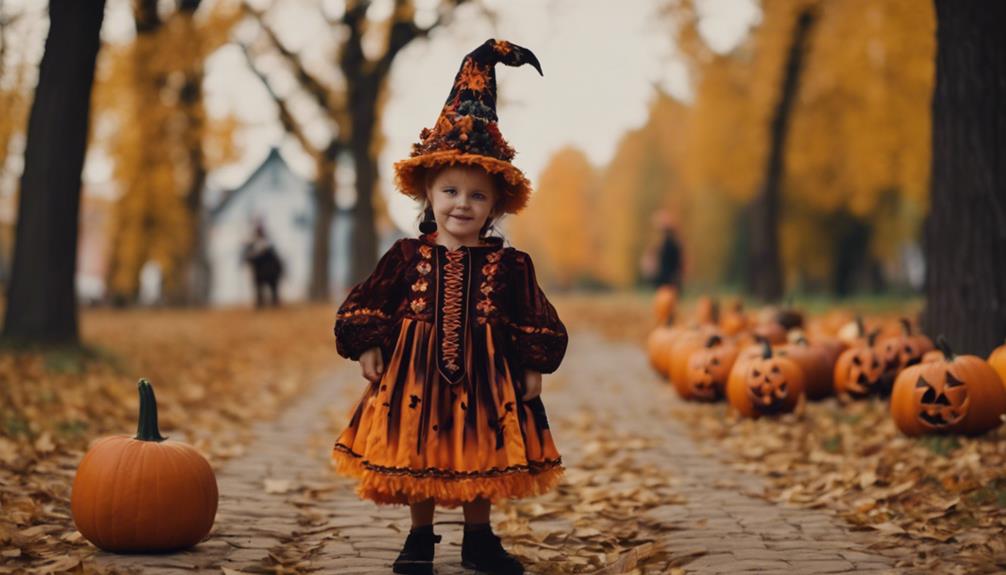
Hungarian Halloween celebrations distinctly differ from Western Halloween festivities by prioritizing the commemoration of deceased loved ones over more festive activities. While Western Halloween is known for its lively costume parties and trick-or-treating, Hungarian traditions lean towards a somber tone, often involving visits to cemeteries to honor and remember those who've passed. This focus on deceased loved ones during Halloween in Hungary is deeply rooted in the country's cultural customs surrounding All Saints Day and All Souls Day.
In Hungary, the influence of these cultural traditions sets the tone for a more subdued approach to Halloween compared to Western celebrations. Despite the growing popularity of Halloween in Hungary, especially through expat groups organizing events, the emphasis remains on reflection and remembrance rather than on the more festive aspects commonly seen in Western countries. This contrast highlights the unique way in which Hungary observes Halloween, reflecting a blend of cultural heritage and contemporary influences.
Frequently Asked Questions
Do People in Budapest Celebrate Halloween?
Yes, people in Budapest do celebrate Halloween! The city hosts a range of spooky events like pumpkin festivals, haunted tours, and costume parties. You can also enjoy themed dishes and cocktails at various cafes, restaurants, and bars.
For a unique experience, check out Halloween cruises on the Danube River. With options like zombie nights and minigolf parties, Budapest offers diverse ways to celebrate this festive occasion.
What Are Traditions in Hungary?
In Hungary, traditions like All Saints Day and All Souls Day hold significance, with church services and cemetery visits being common.
Some locals favor costume festivities such as farsang over Halloween, which is gaining popularity through expat-organized events.
This clash between Halloween celebrations and traditional customs showcases the country's focus on quiet commemorations rather than extravagant festivities.
Despite Halloween's rise in Budapest, Hungary's roots remain firmly planted in its longstanding traditions.
Do Hungarians Trick or Treat?
When it comes to trick or treating in Hungary, it's not a widespread tradition. Hungarian children typically don't go door-to-door asking for treats on Halloween. The concept isn't widely practiced or understood in Hungarian culture.
Instead, Halloween events in Hungary often focus on parties, themed activities, and spooky attractions. While some expat communities may organize trick or treating events, it's not a mainstream practice in the country.
What Do People in Hungary Do for Fun?
For fun in Hungary, you can explore various options like visiting museums, enjoying outdoor activities in parks, trying out local cuisine at restaurants, attending music concerts, or participating in cultural events.
There are also recreational activities such as hiking, biking, and sightseeing that you can engage in for a good time.
Make sure to check out local event listings for exciting happenings in Hungary to make the most of your leisure time.
Conclusion
To sum up, Hungary celebrates Halloween with a unique blend of traditions that honor their deceased loved ones. By visiting cemeteries, lighting candles, and solemnly observing All Deceaseds Day, Hungarians pay their respects in a somber yet meaningful way.
This contrast with Western Halloween celebrations reminds us that honoring the past can be just as important as reveling in the present. As the saying goes, 'tradition isn't the worship of ashes, but the preservation of fire.'

